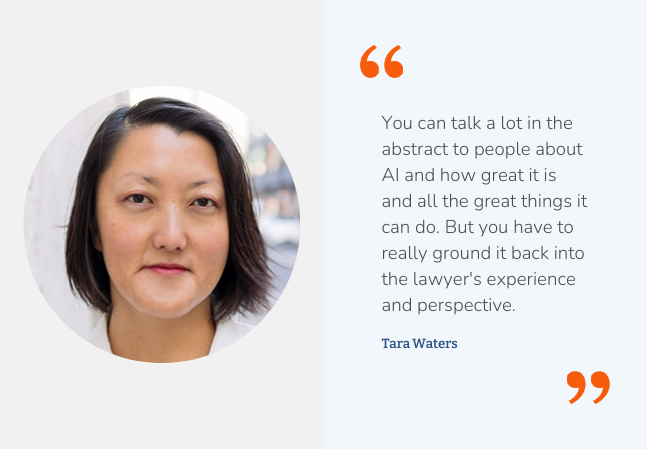Welcome to BARBRI, the trusted global leader in legal education. Continue to access the same expert-led Strafford CLE and CPE webinars you know and value. Plus, explore professional skills courses and more.
About the Course
Introduction
This CLE webinar will examine the corporate governance, data security and other challenges facing boards of directors in overseeing artificial intelligence (AI) initiatives. The panelists will discuss best practices and considerations in establishing AI governance processes and frameworks, working towards compliance with regulatory requirements, and addressing ethical considerations in AI deployment and cybersecurity.
Description
The rapid advancement of AI technologies presents both opportunities and challenges for corporate boards. Directors are increasingly responsible for overseeing AI initiatives to ensure they align with the company's strategic goals while mitigating associated risks. Effective AI oversight requires a comprehensive understanding of AI's potential impacts on business operations, data governance and security, regulatory compliance, and ethical standards.
Boards must proactively establish robust governance frameworks that address the unique risks posed by AI. This includes developing policies for AI ethics, data privacy, and cyber security, as well as working to ensure transparency and accountability in AI decision-making processes. Directors should also be aware of the evolving regulatory landscape and be prepared to adapt their oversight practices accordingly.
Listen as our panel discusses critical considerations for boards of directors in their consideration and oversight of AI, including fostering a culture of continuous learning, engaging with AI experts, and integrating AI considerations into the broader risk management framework of the company as a whole.
Presented By

Mr. Gesser’s practice focuses on advising major companies on a wide range of cybersecurity, privacy and artificial intelligence matters. He has represented global financial services firms, private equity firms, insurance companies, hedge funds and media organizations in large-scale ransomware attacks, cyber breaches by nation-states, and regulatory investigations relating to the use of artificial intelligence. Mr. Gesser regularly advises boards and senior executives on governance, risk, and liability issues relating to cybersecurity and AI. He is also a primary author of the firm’s Data Blog and the architect of the Firm’s Data Portal, an online tool that helps clients quickly assess and comply with their cyber breach notification obligations and tracks AI regulatory developments.

Ms. McIntosh has over 20 years of experience applying privacy, cybersecurity, intellectual property, internet and consumer protection laws to business activities. Her background as a chemist and in-house counsel experience enhances her ability to translate legal standards into easy-to-understand technical and operational processes that clients can implement. Ms. McIntosh's practice focuses on providing advice on privacy and data security issues related to technology-driven transactions and identifying risks related to data processing, data security, and AI development to avoid regulatory issues but also security breach and class-action litigation. She counsels clients across a variety of industries, including pharmaceutical and health technology, private equity, SaaS providers, cybersecurity, automotive finance, ad-tech and e-commerce. Ms. McIntosh is highly-skilled in developing and implementing practical and sustainable corporate governance initiatives as well as strategic compliance involving global privacy laws.
-
This 90-minute webinar is eligible in most states for 1.5 CLE credits.
-
Live Online
On Demand
Date + Time
- event
Thursday, March 6, 2025
- schedule
1:00 p.m. ET./10:00 a.m. PT
- Introduction to AI Governance
- What is AI? What’s different about GenAI?
- Overview of AI technologies and certain business applications
- Overview of risk landscape for AI
- Regulatory, technical, and ethical considerations for AI
- Cyber and data privacy landscape
- Litigation landscape
- Regulatory landscape
- Ethical considerations
- Current best practices for AI governance
- Overview of an AI governance structure
- Building out an AI governance program
- Maximizing value and minimizing risk with GenAI
- Board responsibility and accountability for AI governance
- Regulatory expectations around Board oversight
- Fiduciary duties & the Caremark standard
- Emerging best practices for Oversight of AI
- Lessons learned in AI governance to date
The panel will discuss these and other critical issues:
- How can boards effectively oversee AI initiatives to align with strategic goals?
- What are the key regulatory, technical, and ethical considerations for AI governance?
- What current best practices can boards adopt to enhance their oversight of AI?
- How can boards work to effect transparency and accountability in AI decision-making processes?
Unlimited access to premium CLE courses:
- Annual access
- Available live and on-demand
- Best for attorneys and legal professionals
Unlimited access to premium CPE courses.:
- Annual access
- Available live and on-demand
- Best for CPAs and tax professionals
Unlimited access to premium CLE, CPE, Professional Skills and Practice-Ready courses.:
- Annual access
- Available live and on-demand
- Best for legal, accounting, and tax professionals
Unlimited access to Professional Skills and Practice-Ready courses:
- Annual access
- Available on-demand
- Best for new attorneys
Related Courses

Multinational Data Privacy Compliance: Managing EU and UK Regulatory Requirements
Tuesday, March 24, 2026
1:00 p.m. ET/10:00 a.m. PT

California Climate Disclosure Laws: Compliance Strategy for SB 253 and SB 261
Available On-Demand
Recommended Resources


Expert Interview: Tara Waters and How AI Can Bring People Together
- Legal Technology

